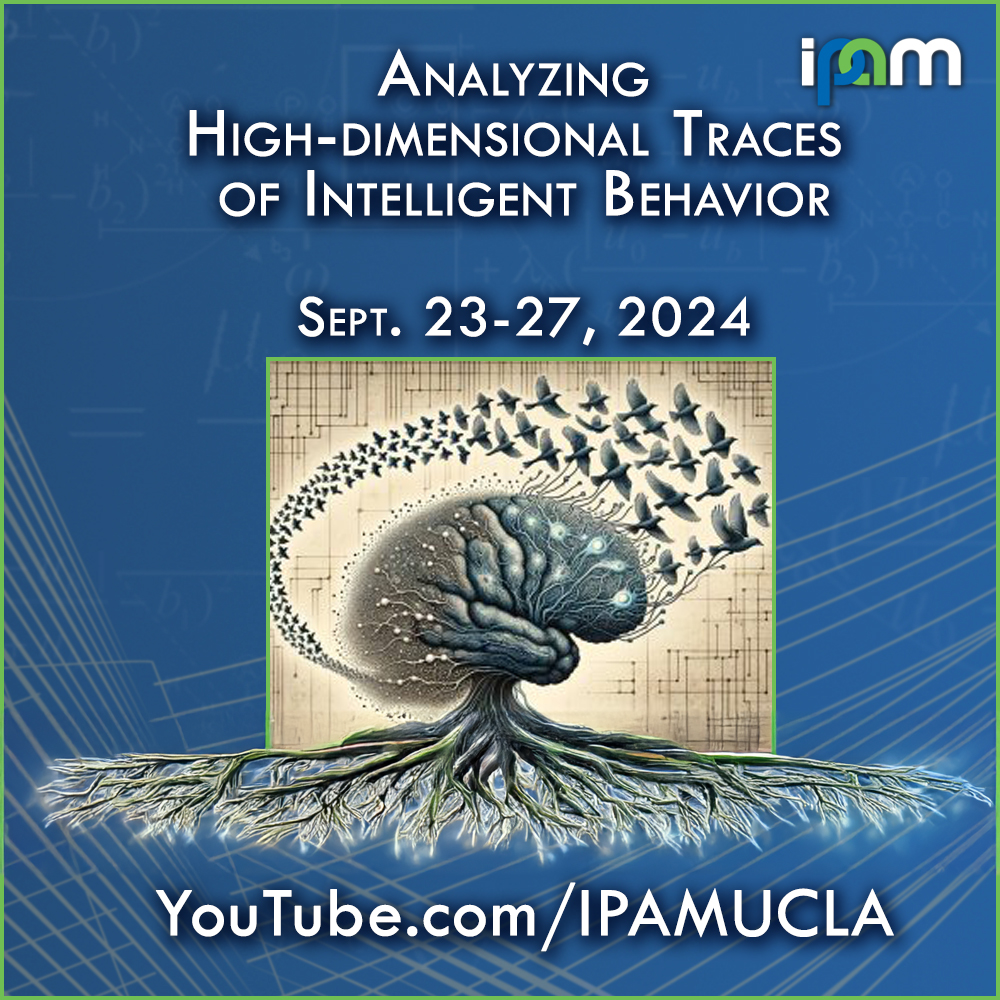Tobias Gerstenberg - Counterfactual simulation in causal cognition - IPAM at UCLA
Presenter
September 26, 2024
Abstract
Recorded 26 September 2024. Tobias Gerstenberg of Stanford University presents "Counterfactual simulation in causal cognition" at IPAM's Analyzing High-dimensional Traces of Intelligent Behavior Workshop.
Abstract: As humans, we spend much of our time going beyond the here and now. We dwell on the past, long for the future, and ponder how things could have turned out differently. The capacity to simulate counterfactual possibilities is an important feat of human cognition. Counterfactuals are critical for how people make causal judgments, how they explain what happened, and how they hold others responsible for their actions. To simulate counterfactuals, we need three key ingredients: a generative mental model of the world, the ability to perform counterfactual interventions on that model, and the capacity to simulate what the consequences of these interventions would have been. I introduce the counterfactual simulation model (CSM) which incorporates these ingredients and applies them to capturing people's intuitive understanding of the physical and psychological world. In the physical domain, the CSM predicts people's causal judgments about a variety of physical scenes, including dynamic collision events, complex situations that involve multiple causes, omissions as causes, and causal responsibility for a system's stability. It also captures the cognitive processes that underlie these judgments as revealed by spontaneous eye-movements. People not only look at what actually happened; they spontaneously simulate whether the outcome in the counterfactual situation would have been different. In the psychological domain, the CSM explains what agent's actions made a difference to the outcome, whether one agent helped or hindered another, and how responsible different agents are for a joint outcome. Together these results demonstrate that much of human thought can be understood as cognitive operations over mental models, and that counterfactual simulation, in particular, plays a critical role in how humans make sense of the world.
Learn more online at: https://www.ipam.ucla.edu/programs/workshops/workshop-i-analyzing-high-dimensional-traces-of-intelligent-behavior/?tab=overview
